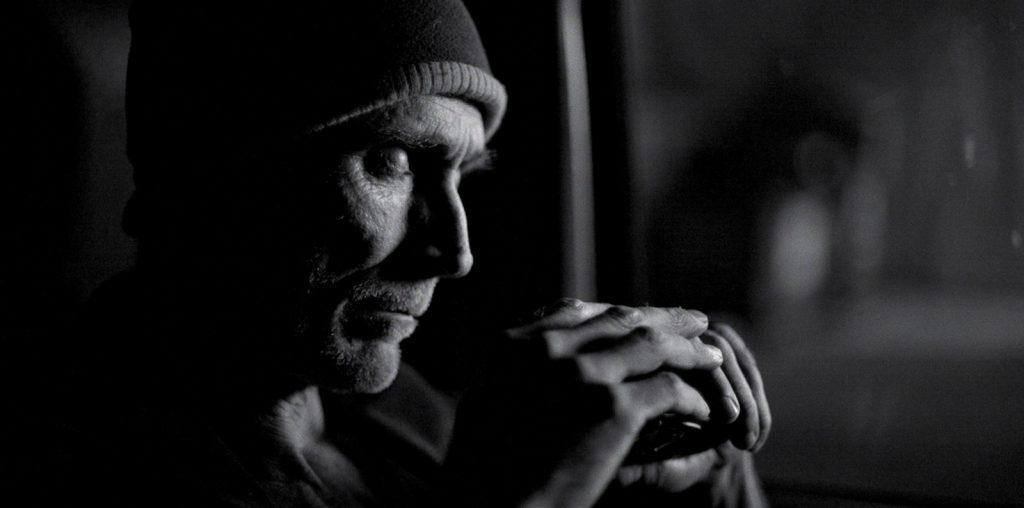
This German animated short film offers little through its plot but tons in its style and characterization. Essentially an ironic fable, in which a fantastical setting must suffer naturalism, the dialog-free “Urs” tells of an elderly mother and son (the latter the title character) who realize they must abandon their home. The solid-framed Urs has a hunchback and ape-like arms, as if he’d been forced through too many years of woodchopping. Yet, his face shows a sensitivity that he shares with his mother. Against her quiet protest, Urs hoists her, still seated in a chair, onto his back for a journey to a promised land over the mountains. Upon their departure, the mother fears the move will mean her time is up.
The plot – a personalized take on Exodus and its vissitudes – follows the classical mold, with a crisis point wedged in. Yet, the telling of the tale hardly matters. The visual style of “Urs,” in a mere 10 minutes, reminds us of the new frontiers that digital animation can traverse. A sprinkle of water from a pump looks like spilling gel, its texture suggesting that Urs’ hope is not in vain. Meanwhile, when a rock falls from his stone-built home, it lands as if it weighed a ton. These two actions encompass the film’s “real” narrative; they open up the characters’ larger story behind the brief tale. Telling his story symbolically more than through episodes, writer-director-animator Moritz Mayerhofer cleverly revises an ancient narrative archetype. “Urs” is cinema as a fleeting dream image.
